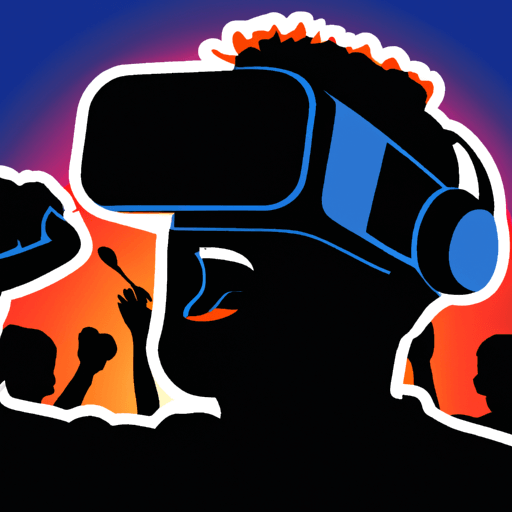The Transformation of Live Music Experiences Through Virtual Reality
The advent of virtual reality (VR) technology has profoundly influenced various fields, and live music is no exception. Let's delve into discussing how this innovative tool has transformed traditional live concerts and enhanced the audience's experience. Furthermore, we shall consider the potentials and pitfalls that this technology presents for the music industry.
Reinventing Live Music Experience with VR
Virtual reality has the power to revolutionize the live music experience. By imitating a three-dimensional, computer-generated environment, VR allows the audience to immerse themselves in the concert experience without having to actually be there. This technology transforms the conventional concert experience, making it accessible to audiences beyond the geographical confines of the concert venue itself. This concept, often referred to as 'virtual attendance,' allows anyone with a VR device to be part of the concert experience, regardless of their location.
Enhancing Audience Experience
The immersive nature of VR has the potential to enhance audience experience significantly. By providing a 360-degree view of the concert, the technology allows viewers to feel like they are part of the crowd. They can see the performance from different angles, turn their heads to view the surroundings and even get up-close with their favorite performers.
The Double-Edged Sword
While VR holds many potential benefits for the live music industry, it also presents several setbacks. For instance, the immersive nature of the technology may create an isolating experience rather than the communal aspect traditionally associated with concerts. Additionally, the heavy reliance on technology and internet quality for VR concerts may pose challenges for artists and organizers trying to deliver a seamless experience.
Looking Into the Future
Virtual reality is still a burgeoning field, and its influence on live music is expected to grow substantially in the coming years. Developments are likely to center around refining the VR experience to make it more sensorially encompassing, perhaps by incorporating touch and smell to complement visuals and sound. Regardless, it's clear that VR presents tremendous potential for transforming how we experience music.
In conclusion, the arrival of VR technology has fundamentally altered the landscape of music concerts. It has leveled the playing fields with its borderless concept, opening new possibilities and challenges alike. As we move forward, it is vital for music industry players to understand and adapt to this transformative technology to shape the future of live music.

















Comments
Leave a Comment